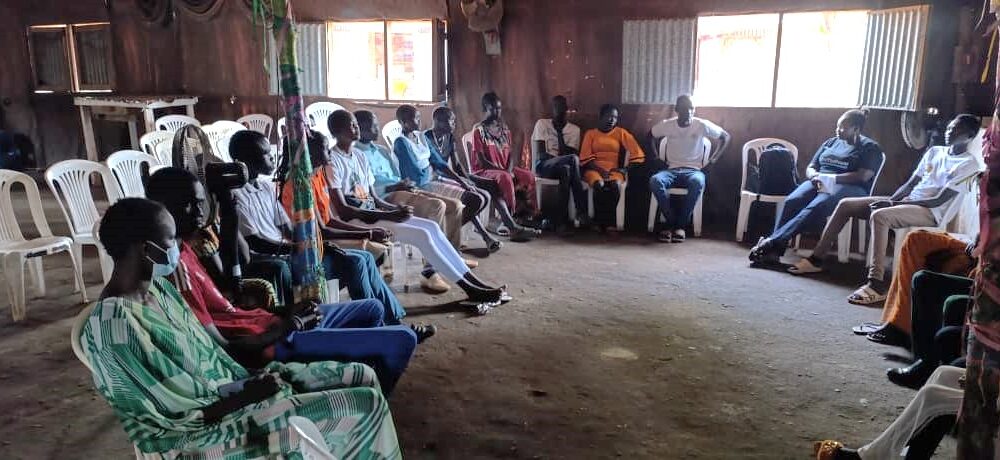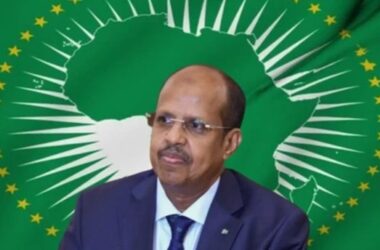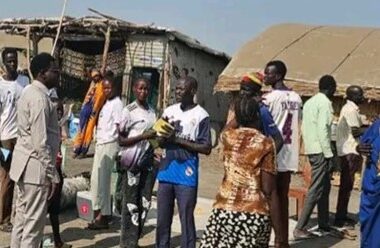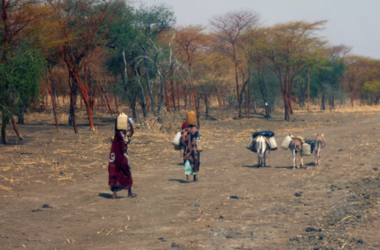By Staff Writer
Located North-west, Mangateen, an Internally Displaced Persons (IDPs) camp in Juba city, is standing tall, not to only strengthening its community outreach programme but also inspiring a new generation of voters, committed to shaping the future of their community.
In August this year, Active Citizen South Sudan (ACSS), an indigenous youth organization, in a bid to champion fundamental right to vote, conducted a series of civic education sessions on election rights and constitutional process in the area.
In return, the once-overlooked neighborhood is now equipped as citizens learn about their voting rights and election processes for the first time.
Speaking in an interview in October, Angelina Stepen Ban, the project coordinator, said it was high time to capacitate the communities on their rights in order to encourage societal progress.
“We realized that the people in Mangateen – IDPs, host communities and even some local authorities were not aware of the election processes in South Sudan or the steps in the constitutional-making process,” she explained.
“So, the ACSS took the initiative to enlighten the local communities, aiming to empower people with the knowledge to make informed choices during elections as well as their constitutional rights are concerned,” Ban added.
To simplify the context, the organization translated key constitutional provisions and articles into local languages, which allowed residents to grasp the material with ease.
The translation work, according to Ms. Ban, made a substantial difference for local communities to be equipped on the law.
The sessions steered through open-discussion forums attracted over 200 locals. Both the IDPs, host community and local authorities participated and this gives them the opportunity to learn, ask questions, and share their perspectives.
Nyagai Both, a 48-year-old resident, who had never heard of the concept of voting in her life was surprised to learn about it.
“I am surprised that this kind of concept exists. I didn’t know these processes existed and that I have a role in them,” she revealed.
Many others who attended the sessions, according to her, would want to see all the communities being sensitized.
“For the first time, we learned that we have a voice in choosing our leaders and shaping our nation’s future. So, we will wait for that time to come,” she added
In September this year, the Revitalized Transitional Government of National Unity (R-TGoNU) extended the elections to December 2026. So, it is expected that the country will hold its first ever elections in 2026.
However, this newfound awareness has inspired a ripple effect, with participants sharing information and resources with other members of their community.
The impact of the sessions is already visible in in the area following the training. Through follow-up assessment this month, participants demonstrated an increased understanding of election processes and expressed readiness to participate in the upcoming elections.
Beyond voting rights, the sessions also helped community members understand their role in the constitutional process.
By learning about the country’s framework, residents now feel more equipped to participate actively in the discussions and decisions shaping South Sudan’s future.
The civic knowledge, according to the studies, fosters a renewed sense of identity and empowerment among citizens. The initiative was supported by the Norwegian People’s Aid (NPA).
One notable outcome of the training has been the strengthening of relationships within the community. People are not only learning about their rights but also encouraging one another to embrace those rights and participate in civil activities.
Monica Gabriel, while reflecting on the sessions, said she now sensitizes local on their rights without fear of unknown.
“We have started to realize that our voices matter. We are sharing the information we gained with other local communities, and this will contribute to a more informed population across the board,” she added.
For a nation as young as South Sudan, building an informed and engaged citizenry is essential. Civic education is not just all about program objective; it is a foundation for lasting peace and democracy.
The engagement is turning the local communities into a beacon of hope, as the local communities recognize the importance of voting rights and the role each person plays in shaping their country.




